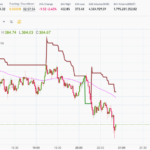YouTube has recently made headlines with its support for the ‘No Fakes Act,’ a legislative proposal aimed at cracking down on unauthorized AI replicas. This move by YouTube signals a significant step towards combating the spread of deepfake videos and other forms of manipulated media on its platform. In this blog post, we will delve into the details of the ‘No Fakes Act,’ discuss YouTube’s role in supporting this initiative, and explore the implications of this development for content creators and viewers alike.
Understanding the ‘No Fakes Act’
The ‘No Fakes Act’ is a proposed legislation that seeks to address the growing threat of deepfake technology and its potential misuse. Deepfakes are AI-generated videos or images that manipulate and superimpose content onto existing media, often with the aim of spreading misinformation or creating deceptive content. These deepfake videos can be incredibly convincing, making it difficult for viewers to discern what is real and what is fake.
The ‘No Fakes Act’ aims to combat the proliferation of deepfakes by targeting individuals or entities that create and disseminate manipulated media without consent. The legislation proposes strict penalties for those found guilty of producing or distributing deepfake content, including fines and potential criminal charges. By holding perpetrators accountable for their actions, the ‘No Fakes Act’ seeks to deter the creation and circulation of deceptive content online.
YouTube’s Support for the ‘No Fakes Act’
YouTube, as one of the largest online platforms for video content, has been at the forefront of efforts to combat deepfake videos and other forms of manipulated media. The platform has faced criticism in the past for its role in hosting and promoting misleading content, leading to calls for greater regulation and oversight. In response to these concerns, YouTube has taken proactive steps to address the issue of deepfakes and support the ‘No Fakes Act.’
By endorsing the ‘No Fakes Act,’ YouTube is signaling its commitment to combating the spread of deceptive content on its platform. The company has pledged to work closely with policymakers and law enforcement agencies to identify and remove deepfake videos that violate the proposed legislation. YouTube’s support for the ‘No Fakes Act’ reflects its acknowledgment of the dangers posed by manipulated media and its willingness to take action to protect its users and uphold the integrity of its platform.
Implications for Content Creators and Viewers
The endorsement of the ‘No Fakes Act’ by YouTube has significant implications for both content creators and viewers. For content creators, the legislation signals a heightened focus on the authenticity and integrity of their content. With the threat of legal repercussions for producing deepfake videos, creators will need to exercise caution and diligence in their content creation process to avoid running afoul of the law.
Viewers, on the other hand, stand to benefit from the increased scrutiny of deepfake videos on platforms like YouTube. By cracking down on deceptive content, the ‘No Fakes Act’ aims to protect viewers from falling victim to misinformation and manipulation. With YouTube’s support for the legislation, viewers can have greater confidence in the authenticity of the content they consume on the platform, enhancing their overall user experience.
In conclusion, YouTube’s support for the ‘No Fakes Act’ represents a significant step towards combating the spread of deepfake videos and other forms of manipulated media online. By endorsing the legislation and committing to work with policymakers and law enforcement agencies, YouTube is taking proactive measures to protect its users and uphold the integrity of its platform. The implications of the ‘No Fakes Act’ for content creators and viewers are profound, signaling a new era of accountability and transparency in online media.







Leave a Reply